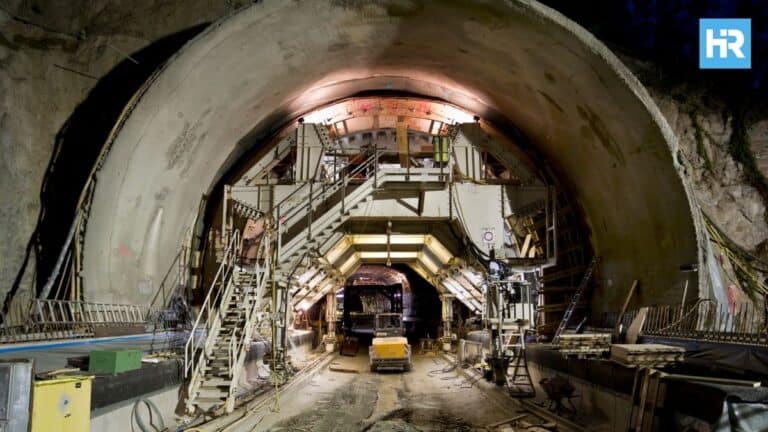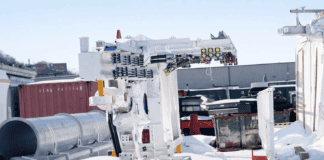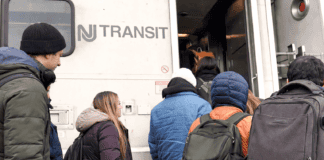
The $16 billion Hudson Tunnel Project, which will connect New York and New Jersey, is set to secure federal funding ahead of the US presidential election. It will overcome historical hurdles and promise major economic and infrastructural benefits.
- The Gateway Development Commission aims to secure final federal funding for the $16 billion Hudson Tunnel Project by the end of summer.
- The project will ease congestion under the Hudson River, improving the Northeast Corridor, Amtrak’s busiest route.
- The new tunnel will generate $19.6 billion in economic activity and create approximately 95,000 jobs during its construction.
NYC Rail Project Approaches Critical Funding Milestone
The long-delayed $16 billion rail tunnel project, aimed at connecting New York and North Bergen, New Jersey, is on the brink of securing federal funding before the upcoming US presidential election.
The Gateway Development Commission, which sponsors the project, targets the end of summer to get the final signatures needed, brushing off concerns about potential political changes.
Gateway Development Commission CEO Kris Kolluri expressed confidence in the project’s progress.
Finalizing Federal Support for Hudson Tunnel
The commission expects roughly $12 billion in federal support and aims to finalize the agreement within 60 to 90 days.
Once the full funding agreement is signed, the project will enter a formal contract with the federal government, securing the final financial commitment needed for its completion.
The new tunnel and upgrades to the existing century-old tunnel are critical for reducing congestion under the Hudson River and improving the Northeast Corridor, Amtrak’s busiest route, which carries over 2,200 daily trains from Washington to Boston.
Historical Impact of the Hudson Tunnel Project
The Hudson Tunnel Project’s history traces back to the Access to the Region’s Core project, which Governor Christie canceled in 2010 due to cost concerns.
The Gateway project was proposed a year later but faced delays under the Trump administration.
The new tunnel, a vital infrastructure update for the region, will replace the existing tunnel damaged by Hurricane Sandy in 2012.
Economic Benefits of the New Hudson Tunnel
James Hughes, professor and dean emeritus of the Edward J. Bloustein School of Planning and Public Policy at Rutgers University, said the tunnel’s significance for the regional economy. It carries more passengers between New York and Washington, D.C., than airlines.
A report by the Regional Plan Association finds that the Hudson Tunnel Project will generate $19.6 billion in economic activity and create approximately 95,000 jobs during its construction.
Stephen Sigmund, chief of public outreach for the Gateway Development Commission, underscored the project’s necessity for New Jersey residents, providing “quality, reliable rail transportation.”
Timeline and Financing of the Hudson Tunnel Project
The project is set to begin major construction in July 2024.
The new tunnel is expected to be completed by 2035, and the old tunnel will be rehabilitated by 2038.
New York is committing about $1.34 billion, New Jersey around $308 million, and the Port Authority of New York and New Jersey $2.68 billion to the project.
The Garden State is already investing $1.6 billion in a new Portal North Bridge, which is crucial for the Northeast Corridor line.
Reducing Hudson Tunnel’s Environmental Impact
North Bergen officials and the Gateway Development Commission are negotiating to reduce the project’s environmental impact.
Mayor Nicholas Sacco highlighted concerns about increased truck traffic.
The commission is considering using freight rail to transport construction materials, which could significantly reduce truck numbers.
Collaboration and Future Steps
Stephen Guido, CEO of Strategic Rail Solutions, proposed an alternative rail plan to minimize truck use, emphasizing environmental justice and reducing the carbon footprint.
Although there is no current track connection to the project site, Guido has designed a rail spur plan and is in discussions with pre-qualified contractors about implementing it.
Kolluri assured that the Gateway Development Commission is committed to evaluating feasible alternatives and maintaining the project’s budget and schedule.
The Gateway Hudson Tunnel Project is a testament to the importance of infrastructure development in supporting regional economies and enhancing transportation efficiency.
As the project advances, it promises significant benefits to the Northeast Corridor and beyond.









